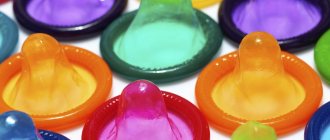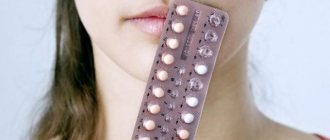Lactation and features of female physiology after childbirth
Breastfeeding is a very exciting process for every mother. It helps you better feel the connection with your baby and conduct your first communication with him. Breastfeeding (BF) is an important stage in the life of every woman and her child.
After childbirth, changes occur in a woman's body. On the one hand, a woman recovers after childbirth, everything returns to its prenatal state. On the other hand, many functions are rearranged to suit the needs of the newborn. Breast milk is essential for both mother and baby.
When breastfeeding, the main character that determines a woman’s entire life activity is the hormone prolactin. It is actively produced in the body during breastfeeding. Prolactin inhibits the work of two other hormones, LH and FSH. These hormones are responsible for the cyclical action of the ovaries, which in turn leads to the return of the menstrual cycle.
Factors influencing the onset of menstruation
When your first period starts after childbirth depends on many conditions. The following is important:
- Does the woman practice breastfeeding? The more often and longer a woman puts her baby to her breast, the more likely it is that her period will start later. The use of formulas, complementary foods, and the refusal of night feedings bring the cycle closer to restoration.
- Body weight after childbirth . If a woman has gained a lot of kilograms after giving birth and has not had time to lose them, this can affect her cycle - periods often become heavy, prolonged, and irregular.
- How accustomed she is to the new image . If a woman does not feel cared for and supported by loved ones, all this exposes her to even more stress. And this serious interference with the work of the pituitary gland of the brain can be the cause of menstrual disorders.
- Has the body recovered ? If the birth was difficult, with greater blood loss or surgical, and the pregnancy proceeded with complications, immediately after the birth of the baby you should think about recovery - include dosed physical activity, taking vitamins, consulting a psychotherapist if necessary.
Lactational amenorrhea
Breastfeeding is most often accompanied by lactation (physiological) amenorrhea. This is what medical practice calls the absence of menstruation. Amenorrhea can be different: during pregnancy, in childhood, after menopause. These are natural processes of the female body.
Why does amenorrhea occur during breastfeeding? The main reason that menstruation does not occur during lactation is the aforementioned hormone prolactin. If it is produced well in the body, then there is no menstruation. That is, this is a kind of nature’s way of giving a woman time to rest before the next pregnancy. As a rule, 90% of breastfeeding women do not menstruate - and this is normal. There is no need to worry here.
An important point: menstruation is usually absent only with full breastfeeding. When switching to mixed feeding or introducing complementary foods, the cycle is restored.
Features and timing of restoration of the menstrual cycle during breastfeeding
A delay in the onset of menstruation (from 2 to 12 months after childbirth) is caused by the following factors:
- Does the baby attach to the breast, or do you express milk and he drinks from a bottle?
- Are there nighttime breastfeedings, or does the baby sleep all night without waking up?
- Do you have hormonal diseases or infections that affect your hormone levels?
As a rule, menstruation does not begin during lactation. Modern mothers introduce complementary foods at 5.5-6 months, and until this age they feed the child on demand, and not according to a schedule. How early and in what volume complementary feeding is started depends on how long it takes for the cycle to recover.
If a mother chooses breastfeeding according to a regimen, in this case the baby is given breastfeeding less often, which means that prolactin is produced in a smaller volume and ovarian function is enhanced. Once there is enough progesterone, the follicle will mature, then your period will come. And vice versa, if the mother feeds on demand, as well as at night (once or twice), menstruation during lactation is delayed until the end of breastfeeding.
Important! If breastfeeding is mixed due to lack of milk, menstruation may occur irregularly. But normally this can happen within 3-4 months. If the cycle has not recovered over a longer period, hormonal problems or some kind of infection are possible, which is an unprecedented reason to ask your doctor about this.

There are a number of factors that can delay the appearance of menstruation while breastfeeding
Menstruation within 30 days after labor
If the mother was breastfeeding her baby, and her period came a month after giving birth, pay attention to this point. The fact is that this is a rather rare situation, but very unsafe for the health of the mother in labor.
For example
It is possible that the postpartum discharge lasted 3 weeks. Then aching pain appeared in the lower abdomen, which can be taken as a harbinger of menstruation. But the growth of the endometrium during this period is physically impossible, which means there is simply nothing to be rejected during menstruation. Will my period start? Obviously not. In fact, a blood clot may form in the uterus, causing inflammation and bleeding. Therefore, if, after the cessation of lochia discharge, new bleeding begins, this is a reason for an early visit to the doctor!
Periods in 3-6 months
When your baby is three months old, it is quite possible that your first period will appear, even while breastfeeding. This is a variant of the norm for non-breastfeeding mothers: by three months, all hormones came into balance, and the menstrual cycle was completely restored. This is also normal for those who practice mixed feeding. Prolactin deficiency is a sign for the pituitary gland that it can function in its intended purpose, that is, to conceive and carry a new pregnancy. Progesterone production begins, follicle formation and regular periods begin, which will now become regular.
Note!
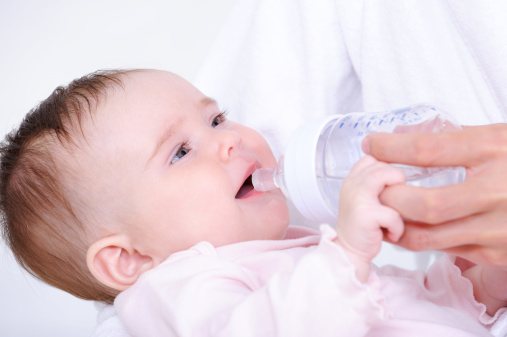
By supplementing your baby with water, you thereby create a feeling of fullness in him
If the mother only breastfeeds the baby, the reason why her period started so early may be the following. Mothers who practice supplementing their baby with regular water are doing it in vain. Supplementation can and is recommended when the child is bottle-fed or mixed-fed. Otherwise, by supplementing with water, creating an imaginary volume and a temporary feeling of fullness in the child, mothers simply rest without breastfeeding. Of course, young mothers, inexperienced and often for reasons of losing the shape of their breasts, want to combine both motherhood and the beauty of their forms, but not everyone has a strong enough constitution to do this. Therefore, in practice it often turns out that, without sucking out all the milk, the child does not stimulate greater production of prolactin. This means that less milk comes in, the pituitary gland stops secreting it unnecessarily, and the situation turns out to be approximately the same as with mixed feeding.
If the first period comes after 5 months, this is also normal for breastfeeding, since from this age complementary foods replace part of the volume of breast milk. In addition, the baby is already able to sleep all night without “snacks,” and the absence of night feedings actively reduces the production of prolactin.
Periods in one year
It happens that mothers forget about menstruation for a year. If there have been no periods for a year, this can normally only be accompanied by regular, full-fledged breastfeeding. If you have good lactation and the child is in no hurry to try something new, this is a personal matter between mother and baby, however, if you deliberately delay the introduction of complementary foods in order to delay the restoration of the menstrual cycle, this is a delusion. The child is already old enough not to require night feedings, and prolactin production is most active at night.
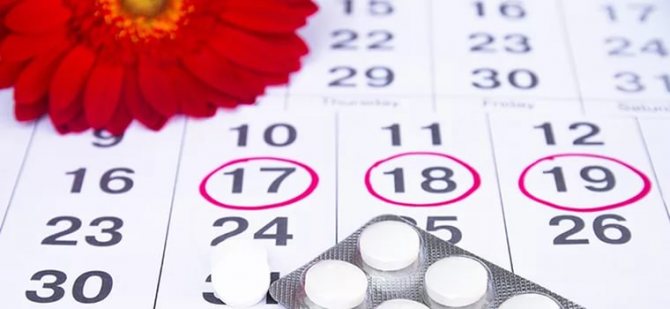
There are cases that menstruation can begin even after a year with full breastfeeding
When does your period come after childbirth?
But there are also cases when menstruation still comes during breastfeeding. There is a category of women in whom prolactin may not sufficiently suppress the production of other hormones. Then, even against the background of prolactin, menstruation appears during breastfeeding.
In addition, each woman is individual. Therefore, the onset of another ovulation may occur during breastfeeding. It is impossible to accurately guess this date. Ovulation and, accordingly, menstruation may depend on the state of the endocrine system, on the frequency of feeding the baby, on the age and weight of the woman.
Approximate dates for the onset of menstruation under various factors
| Factor influencing the onset of the menstrual cycle after childbirth | Period of menstruation |
| When feeding your baby on demand | Menstruation occurs 6-12 months after the birth of the child |
| When feeding your baby strictly according to schedule | Menstruation can come even 2-3 months after the start of breastfeeding |
| With mixed feeding, when the baby is fed with formula | Menstruation can begin in the third to fifth month of mixed feeding |
| When artificially feeding a baby | Your period starts 8 weeks after giving birth |
But you need to be careful. If there is any disruption in feeding, the ovaries can recover faster and menstruation will begin earlier.
The timing of the onset of menstruation during breastfeeding is not affected by the type of birth. But the process of childbirth can delay or accelerate the onset of the next ovulation. If a woman’s birth was difficult, with complications, then, as a rule, the body needs more time to restore the hormonal system. Menstruation may occur later.
After a cesarean section (CS), a woman, on the contrary, can return to normal quite quickly. And in the absence of feeding, menstruation can begin by 8-10 weeks.
With early cessation of breastfeeding (up to six months), menstruation occurs a month to a month and a half after the end of feeding.
Bloody discharge after cesarean section
Regardless of the method of delivery, all women undergo a process of cleansing and healing of the uterine cavity. Lochia after cesarean section can last up to 2 months. The onset of the first rejection of the functional layer of the endometrium does not depend on how the child was born.
Lochia character:
- the first 2-3 days after birth - spotting;
- from 3-4 days – serous-serous discharge
- from the 10th day – yellowish-white discharge;
- at 5-6 weeks, discharge from the uterus stops.
Prolonged discharge with blood is a reason to consult a doctor!
In the future, if a nursing mother regularly puts the baby to the breast and expresses milk at night (the baby refuses to eat at night), then lactational amenorrhea will continue until the production of prolactin begins to decrease, that is, the onset of menstruation should not be expected.
After a cesarean section, the restoration of the menstrual cycle, the volume of discharge and other indicators will depend on the individual characteristics of the patient.
Although a caesarean section is considered a simple operation, complications can occur after it. For this reason, women who have given birth by cesarean section are advised to know the differences between uterine bleeding, lochia and menstruation.
We will talk about this in one of our next articles.
Menstruation during breastfeeding
After childbirth, when menstruation begins, the cycle is irregular at first. You need to wait 2-3 months until it returns to normal. Menstruation should return with the same characteristics as before pregnancy: color, amount of discharge, cycle length, pain. In some cases, childbirth has a positive effect on the ovulation process. Many girls note that pain during menstruation after childbirth is not observed.
If menstruation occurs and then disappears again for a short period, it’s okay. During lactation, a woman’s cycle may be irregular until breastfeeding is complete. But if the cycle does not resume after 2-3 months (although you already had your period), this is a reason to consult a doctor. It is also worth visiting a doctor if delays in menstruation occur quite often. Another serious reason to visit a gynecologist will be severe pain during menstruation, especially if there has been none before.
All new mothers, along with the appearance of milk, experience spotting, which can be mistaken for menstruation. But it's not them. Here we are talking about lochia, postpartum discharge. This is a natural phenomenon, the body’s response to contraction of the uterus and cleansing after childbirth of the remnants of the fetal membrane, mucus, and blood. They usually last 1-1.5 months immediately after birth. In the first days, lochia may resemble menstruation, later they turn pale and acquire a light brown tint. Subsequently, the lochia becomes scanty and spotty. By the middle of the first month, the discharge should be almost white. With breastfeeding, lochia may be more abundant immediately at the time of feeding due to increased contraction of the uterus.
Please note if:
- postpartum discharge is bright red for more than a week or does not stop for a long time;
- the discharge suddenly stopped or increased sharply;
- pain appeared in the lower abdomen;
- The discharge has acquired an unpleasant odor and an unusual color.
- body temperature increased.
Such symptoms may indicate the development of postpartum complications: bleeding, endometritis. To avoid complications, it is better to undergo an examination by a specialist in case of the slightest irregularities.
In what cases should you consult a doctor?
A woman is recommended to contact a gynecologist for a preventive examination no later than a month after discharge. The doctor will check how the uterus contracts, take a smear, examine the mammary glands, give recommendations on methods of contraception, etc.
The reason for a visit to the doctor may be poor health, for example pain in the lower abdomen. You should contact a gynecologist if the lochia disappears, but returns after a few days.
Normally, the first menstruation after the end of lactation should occur within 2 months to six months. If your period does not start after 6 months, it is recommended to undergo a medical examination.
Medical assistance is necessary for women whose cycle regularity does not return for a long time.
Breast milk and menstruation
Girls after childbirth are also concerned about the question of whether menstruation affects breast milk and whether it is possible to breastfeed during menstruation? How will this affect the baby?
Firstly, the arrival of menstruation does not mean at all that the milk will disappear. Secondly, there is a myth that menstruation changes the taste of milk, making it bitter and even harmful. This statement is not supported by anything. Children calmly continue to drink breast milk even during menstrual periods, which means that its taste and composition do not change. Nothing harmful appears in milk at this time. During this period, you just need to approach the issue of personal hygiene even more carefully. It is not recommended to stop breastfeeding during your period.
If during menstruation it seemed to the nursing mother that the baby’s condition had changed, he became more nervous and capricious, then this is most likely the child taking on emotions from the person closest to him. The baby acutely senses the mood of the mother, who during menstruation becomes more excited, whose mood often changes, and reacts to this. During this period, a woman should be calm and balanced so as not to pass on negative emotions to her baby.
About the effect on lactation
There is an opinion that the onset of menstruation is a reason to stop breastfeeding. Meanwhile, it is fundamentally incorrect. It doesn’t matter at all whether menstruation occurs if the baby happily clings to the breast and eats milk.

Another thing is that the menstrual cycle can affect lactation. How? Sometimes:
- Your milk supply may decrease. In this case, frequent application and increasing the amount of warm liquid you drink, including special teas for lactation, can help;
- its smell and taste may change. This is due to increased sweating due to hormonal changes. Needless to say, frequent hygiene procedures can change the situation in this case;
- anxiety in the baby, loose stools. You need to warn your pediatrician about them, but you shouldn’t refuse breastfeeding because of them. Everything will be back to normal soon.
Don’t forget about this, and also save the article on your wall on social networks and subscribe to blog updates! It was Lena Zhabinskaya, bye-bye!
Lactation is a way to prevent pregnancy
Should this period be considered as one of the methods of contraception and is it possible to get pregnant while breastfeeding? It is impossible to answer this question unambiguously.
Regular breastfeeding significantly reduces the risk of becoming pregnant after childbirth. Prolactin is produced well, there are no periods, therefore the egg does not function, it “rests”. Can a nursing mother completely rely on this method? This type of contraception does not protect against future pregnancy 100%. At some points, prolactin levels may decrease, the egg may mature, and menstruation will begin even while breastfeeding. Then prolactin, for example due to active feeding, will increase and menstruation will stop. Sometimes a woman can simply skip the onset of menstruation if the discharge is scanty. In this case, a woman can find out that she is pregnant already 2-3 months after conception.
Is it possible to get pregnant while breastfeeding? Yes, it's possible. This method of contraception is insufficient. Even with breastfeeding, additional methods of protection against unwanted pregnancy should be used.
It is important to remember: ovulation and the possibility of conceiving a child occur even before the first menstruation. It is quite easy to miss ovulation during breastfeeding. Most of the same age are born precisely because mothers relied too much on lactational amenorrhea and did not protect themselves during breastfeeding.
What to do if they are gone for a long time
If a woman continues to breastfeed her baby for more than six months and there is no menstruation, it is likely that this is a physiological feature. Some claim that their cycle was restored only after 3-6 months after the complete completion of lactation. However, there may be other reasons:
- New pregnancy . If a woman has not yet returned to menstruation, conception can occur at any time as soon as the ovaries become active. The fact is that ovulation is necessary for successful fertilization; if it does not occur, menstruation comes.
But it happens that at the very first ovulation, conception occurs and pregnancy occurs, and the woman believes that her period does not occur due to breastfeeding. Therefore, with regular sexual activity after three months after childbirth, it is recommended to use contraception - hormonal pills for nursing (for example, Lactinet), intrauterine device and others.
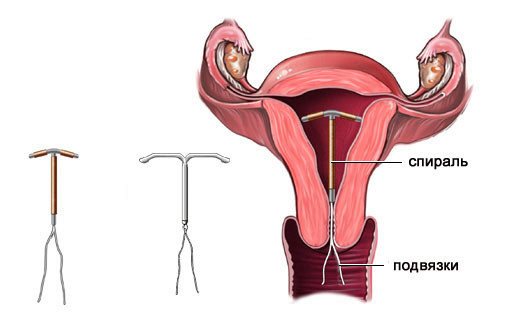
- Hormonal disorders. An increase in prolactin levels (women often experience this even before pregnancy) in the postpartum period can also lead to long-term delays. Excessive levels of estrogen in older mothers can also lead to malfunctions due to the fact that it is in adipose tissue that the transformation of androgens into estrogens occurs. The higher the body weight, the higher the level of estrogen it has, which is not always good.
Also, the time of the onset of menstruation is influenced by the function of the thyroid gland - untimely detection of disorders can lead to cycle failures.
- Pituitary disorders . Difficult childbirth (with large blood loss), gestosis at the end of pregnancy, preeclampsia and eclampsia can lead to disruption of the blood supply to the pituitary gland of the brain, leading to its necrosis. Sheehan's syndrome develops - the woman has no menstruation, obesity, and a malfunction of the thyroid gland. This is a serious disease that requires lifelong hormone replacement therapy.
- Stressful conditions . Overly emotional and sensitive mothers are influenced by new living conditions - lack of sleep, anxiety, disagreements in the family. This can also be a reason for missing periods.
- Postponed surgeries. If women had any additional operations on the uterus or appendages (removal of nodes, body of the uterus, ovaries) during childbirth or immediately after it, this may be the reason - you should check with your doctor.
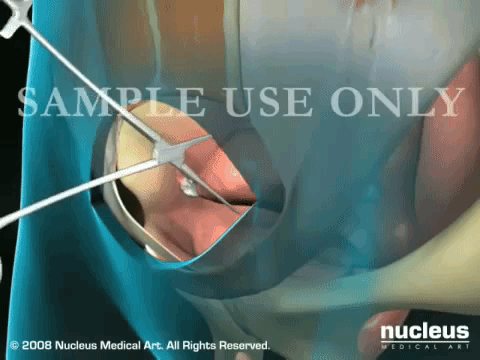
Removal of the uterine body
Advice for young mothers during lactation
Now there are many recommendations regarding nutrition and daily routine after the birth of a baby.
- You should pay attention to the psychological state and mood of the nursing mother when her period begins. Knowing that at these moments a woman is unbalanced and emotionally unstable, you should restrain yourself more. You need to give yourself more time to rest, entrust household chores and worries to loved ones. It will be better for the baby if a rested mother in a good mood spends more time with him than to feel the fatigue and tension of a woman who has neither the moral nor physical strength to tinker with her little happiness.
- You shouldn't give up physical activity completely. Exercise in moderation will help you recover faster after childbirth. Gym classes can be replaced with light fitness, yoga or regular walks in the fresh air.
- Don’t forget to see your gynecologist to be completely confident in your health.
- The period of breastfeeding is a special and very pleasant time for women. An additional benefit for most is the absence of menstruation.
- Better take care of yourself, your body, pay attention to proper nutrition and lifestyle, so as not to overshadow this time with unexpected consequences.
A prolonged delay in menstruation or cycle instability may indicate a gynecological pathology. In this case, medications are used to induce menstruation (progesterone and its analogues) that are compatible with breastfeeding. Progesterone affects a woman’s hormonal levels, helping to normalize the cycle. If the cycle is not restored due to the use of medications, it is necessary to undergo an examination by a gynecologist.
Read
Also:
- During menstruation, it hurts to go to the toilet, both big and small, reasons
- Breast pads for breastfeeding
- Is it possible to get pregnant on the fifth day of your period?
- Is it possible to get pregnant without menstruation?
- The likelihood of pregnancy during menstruation: is it possible to get pregnant during menstruation?
- How to get pregnant during anovulation, can there be ovulation without menstruation?
Conclusion
We have determined that menstruation can begin during breastfeeding. In terms of the timing of their recovery, it is considered normal when menstruation begins after 2-3 months (with IV) or after 3-6 months (with breastfeeding) and up to 1.5-2 years after the birth of the baby. The timing of the return of menstruation depends on the artificial or natural method of feeding the baby and other factors. If your mother is tormented by doubts or painful sensations, you should definitely visit a gynecologist and consult on exciting topics!
Bibliography:
- “The Womanly Art of Breastfeeding: completely revised and updated 8th” – by Diane Wiessinger, Diana West, Teresa Pitman. 576 p.; July 13, 2010
- When will my periods start again after pregnancy? – by NHS (publication verified 03/28/2018)

Quite a lot of women note that after giving birth, their periods became heavy. At the same time, with the birth of a child, all the thoughts of the new mother are occupied with issues related to the health of the little man. And very often, important points regarding the restoration of one’s own body after serious stress, which is childbirth, fade into the background, and even into the third or fifth plan. However, this position is fundamentally wrong, since the child needs, first of all, a healthy mother, which means that it is imperative to pay close attention to your recovery and, even more so, to take care of the problems of the norm and pathology of physiological manifestations accompanying this process.








